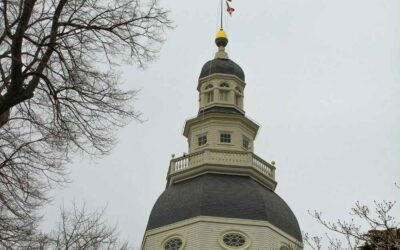
Below is an overview of some of the key topics covered during the 445th session of the Maryland General Assembly:
Gun Laws
Last June, the US Supreme Court issued a decision in New York Rifle & Pistol Association Inc. v. Bruen which rendered the concealed-carry policies in New York, Maryland and five other states unconstitutional. Maryland’s policy had required applicants to demonstrate that they do not have a predisposition for violent behavior, and they had to provide a legal, established reason for their desire to carry a firearm.
In response to the Bruen decision, the Maryland General Assembly passed legislation that would limit who gets a license to carry a concealed gun. The bill also increased the criminal penalty for people illegally carrying a gun from three to five years – on par with legislation that Baltimore State’s Attorney Ivan Bates lobbied for earlier this year. House Bill 307, or Jaelynn’s Law, will require gun owners to store firearms where children and other people who shouldn’t have guns cannot get to them, and Senate Bill 1 will prohibit people with concealed-carry licenses from wearing their firearms in certain locations, like polling places and certain health care facilities.
Maryland 529
Maryland 529 is an independent agency which allows parents to save money tax-free for their children’s education. The agency came under scrutiny last year after it suspended access to interest payments for account holders in its Maryland Prepaid College Trust. Parents reported losses in anticipated payouts and scrambled to cover tuition. Agency officials blamed the debacle on an interest calculation error made during a botched transition to a new contract program manager. The problem prompted the legislature to pass bills that will end the prepaid trust program by 2025, abolish the 529 board and move the organization into the Office of the State Treasurer, Derek Davis.
Fighting Poverty
In his first session as governor, Wes Moore introduced several initiatives aimed at ending child poverty – an issue that he spoke often about on the campaign trail. Senate Bill 552 makes permanent an expansion of the earned income tax credit for low wage earners that was passed in 2021 and was sent to the Governor for signature on April 3rd. The General Assembly also voted to accelerate the $15 minimum wage to January 1, 2024 – a year before the state’s current law would require it.
TikTok Ban
House Bill 1141, whose lead sponsor was Delegate Rachel Muñoz (R-Anne Arundel), will prohibit the installation of the Chinese-owned TikTok social media application on any state-owned devices and networks. TikTok, which is owned by the Chinese firm ByteDance, is causing governmental cybersecurity concerns that the People’s Republic of China could use it to monitor users’ data and spy on Americans.
In December, a month before leaving office, Hogan issued an emergency directive banning the use of TikTok on state government devices and networks.
Earlier this year, the White House gave federal agencies 30 days to ensure that TikTok is not on any federal devices or systems. More than 30 states, as well as Canada and major European Union agencies, have banned the application from its devices.
Cannabis Reform (SB 516)
Marylanders voted in November to approve the legalization of marijuana for recreational use and possession for people ages 21 and older. Lawmakers this session were tasked with determining how the fledgling industry will function. The legislation would allow for medical marijuana businesses to begin converting their licenses to new medical and recreational licenses before July 1. That would be followed by a first round of new licenses for “social equity applicants” – determined to be those who have lived in an area “disproportionally impacted” by cannabis criminalization – by January 1, 2024. There would then be a second round of licenses after May 1, 2024 for any other applicants. Large portions of the revenue from a 9% sales tax on recreational cannabis would go toward communities disproportionally affected by the war on drugs.
Abortion
The Maryland General Assembly passed legislation that will allow Marylanders to determine during the 2024 election whether reproductive freedom — including the ability to become pregnant, undergo fertility treatment, receive contraception services or get an abortion — should be enshrined in the state constitution.
State budget
After a brief dust-up over money for public and private schools, House and Senate budget negotiators agreed on a framework for the $63 million state budget that begins July 1. The plan would direct $900 million to the Blueprint for Maryland’s Future, set up to $200 million aside for to-be-determined transportation projects (in addition to money for projects already in the works), and spend $9 million on tuition in the BOOST program, which sends students from families with low incomes to private and parochial schools.




